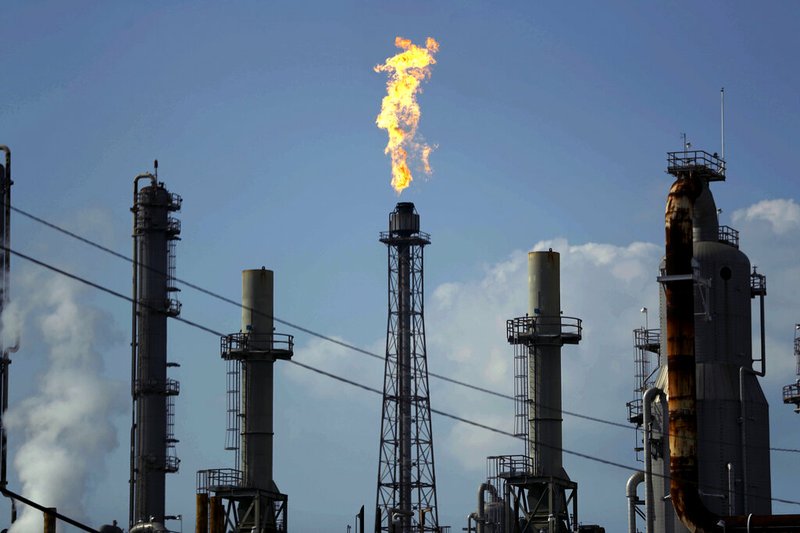DUBAI, United Arab Emirates — The OPEC oil cartel and other oil producers agreed Sunday to boost oil prices by cutting nearly 10 million barrels a day in production, or a tenth of global supply, according to energy officials from several nations who participated in the talks.
Mexico's energy minister said on Twitter that the group of nations agreed to cut 9.7 million barrels a day to begin May 1. Energy officials from other countries shared similar information after the officials met by video conference Sunday.
Iran's oil ministry also confirmed the 9.7 million cut for May and June. It said the so-called OPEC+ countries agree to have Mexico reduce its output by 100,000 barrels only for those two months. That had been a sticking point for the accord meant to boost global energy prices.
The agreement would be an unprecedented global pact to stabilize the market.
Meanwhile, Iranian Oil Minister Bijan Zanganeh told state television that Kuwait, Saudi Arabia and the United Arab Emirates would cut another 2 million barrels of oil a day between them atop the OPEC+ deal to help re-balance the markets. The three countries did not immediately acknowledge the cut themselves, though Zanganeh attended the video conference.
"The minister of Saudi Arabia said that the Saudi Arabia, Kuwait and the UAE agreed to reduce more two million barrels than the agreement voluntarily," Zanganeh said. "We hope that the market returns to a balanced way."
Video aired by the Saudi-owned satellite channel Al-Arabiya showed the moment that Saudi Energy Minister Prince Abdulaziz bin Salman, a son of King Salman, assented to the deal.
"I go with the consent, so I agree," the prince said, chuckling, drawing a round of applause from those on the video conference call.
Nigeria's Petroleum Resources Ministry said in a statement that the other cuts would stand in the deal, meaning an 8 million barrel per day cut from July through the end of the year and a 6 million barrel cut for 16 months beginning in 2021.
"This will enable the rebalancing of the oil markets and the expected rebound of prices by $15 per barrel in the short term," the ministry said in a statement.
Mexico had initially blocked the deal but its president, Andrés Manuel López Obrador, had said Friday that he had agreed with U.S. President Donald Trump that the U.S. will compensate what Mexico cannot add to the proposed cuts.
"The United States will help Mexico along and they'll reimburse us sometime at later date when they're prepared to do so," Trump said at a White House press briefing Friday.
